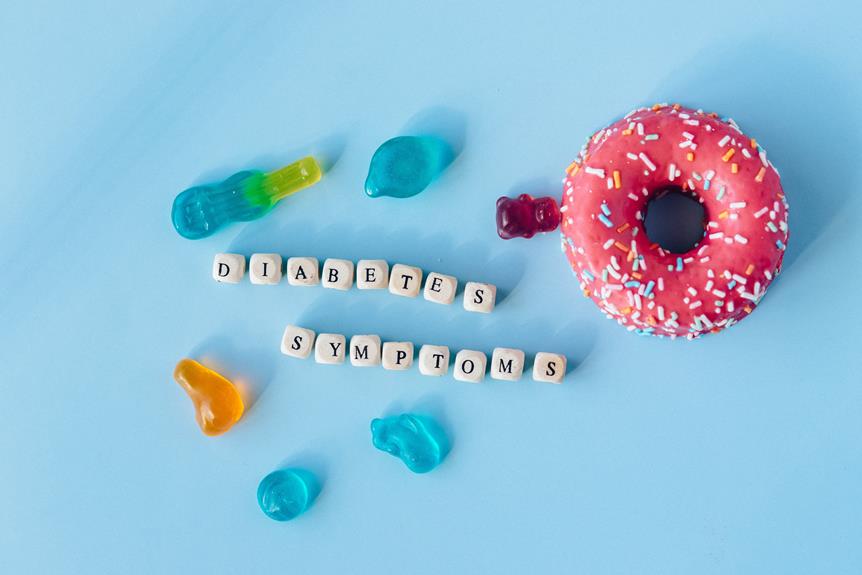Managing menopause might feel mystifying, but your diet can make a difference. You're not alone in this journey, and the right foods can help alleviate some of the discomfort associated with this phase of life.
This guide will introduce you to eight essential foods – from fortified yogurt to healthy fats – that can help reduce menopausal symptoms. They're not just good for you; they're delicious too.
So, let's explore these dietary gems together, understand their benefits, and discover how they can ease your menopause symptoms.
It's all about embracing change with grace, and a good meal.
Key Takeaways
- Fortified yogurt and lean proteins, such as chicken, turkey, fish, beans, and legumes, are essential for maintaining bone health, muscle mass, and managing menopause symptoms.
- Salmon and healthy fats, like avocados, nuts, and seeds, can help alleviate menopause symptoms, improve mood, reduce inflammation, and lower the risk of heart disease.
- Staying hydrated and consuming spinach, a menopause superfood, can relieve menopause discomfort, reduce hot flashes, and provide essential nutrients like magnesium and phytoestrogens.
- Almonds, quinoa, fatty fish, flaxseeds, walnuts, chia seeds, and dairy products fortified with omega-3s are beneficial for weight management, relieving hot flashes, and overall menopause relief.
The Power of Fortified Yogurt
As a menopausal woman, you'll find that including just one serving of fortified yogurt in your daily diet can significantly boost your overall health and ease menopausal symptoms. It's a prime food source of essential dietary elements like vitamin D and calcium, nutrients crucial for maintaining bone health during menopause.
Not only does fortified yogurt help preserve muscle, heart, and nerve function, but it also effectively supports overall bodily systems and organ function. Aiding in meeting the dietary guidelines for daily calcium and vitamin D needs, this healthy food indeed contributes to a balanced diet.
Benefits of Lean Proteins
In your journey through menopause, it's crucial to understand the benefits lean proteins can offer to your overall health and symptom management. These proteins, part of the 8 best foods for menopause symptoms, are essential for preserving muscle mass and bone strength while promoting satiety – crucial for weight loss.
Key benefits of lean proteins for menopausal women include:
- Muscle mass preservation and bone strength enhancement
- Lean proteins like chicken, turkey, fish, beans, and legumes can help maintain your strength and vitality during this transition.
- Weight management
- A balanced diet rich in lean protein can help manage menopause symptoms by promoting satiety and curbing overeating tendencies.
The Magic of Salmon
Consider incorporating salmon into your menopause diet for its remarkable benefits, including mood improvement and inflammation reduction. Loaded with omega-3 fatty acids and healthy fats, salmon can help alleviate menopause symptoms. These essential nutrients are linked to mood enhancement and inflammation reduction, which are vital during menopause when estrogen levels drop.
The Health Office of Dietary suggests salmon as it provides high-quality protein, meeting the Recommended Dietary Allowance. Moreover, salmon is rich in vitamin B12, which regulates mood-impacting neurotransmitters. This, combined with the healthy fats in salmon, not only mitigates menopause symptoms but also reduces the risk of heart disease.
Embrace the magic of salmon in your diet and enjoy its numerous health benefits.
Importance of Hydration
You mightn't think it, but maintaining proper hydration is incredibly crucial when dealing with menopause symptoms. Staying hydrated can help relieve menopause discomfort and even reduce the severity of hot flashes. Not just that, it can also boost your energy levels which often plummet during this phase.
Here's how hydration can help:
- Drinking at least 108 ounces of water daily can help alleviate hot flashes. It's a simple step, but its impact is profound.
- Consuming fruits and vegetables, especially green leafy ones, contributes to your hydration levels. They not only help you stay hydrated but also provide essential nutrients.
Always consult with your healthcare provider about the importance of hydration and the best ways for you to stay hydrated. Remember, every small step you take can make a significant difference.
Spinach: A Menopause Superfood
Beyond keeping you hydrated with leafy greens like spinach, it's worth noting that this superfood is particularly powerful for managing menopause symptoms. As a woman going through menopause, spinach can help improve your overall well-being.
This menopause superfood is rich in magnesium, an essential nutrient known to ease menopause symptoms linked to stress and relaxation. Spinach can also help lower the occurrence of flashes and night sweats, common difficulties during menopause.
Certain foods, like spinach, contain phytoestrogens, which mimic estrogen in your body, potentially soothing menopause symptoms. Incorporating more spinach into your diet can help keep your weight in check, another challenge during menopause.
Embrace the power of spinach, a menopause superfood, to manage your symptoms more effectively.
Almonds and Their Perks
Switching your focus from leafy greens, another powerful ally in managing menopause symptoms is the humble almond. As part of your Menopause Diet, almonds and their perks aren't to be overlooked.
A registered dietitian will confirm their benefits, backed by scientific evidence. The Institutes of Health Office extols the virtues of these calcium-rich foods.
- Almonds help you manage your total daily calories, supporting weight management:
- They're a natural source of plant-based protein, which aids satiety.
- They're packed with essential nutrients:
- High in B vitamins and magnesium, they're Natural Remedies for many menopause symptoms.
So, make sure to incorporate almonds into your diet.
The humble almond is a powerful tool, offering you control and relief during this intimate stage of life.
Why Quinoa Is Essential
After enjoying the benefits of almonds, it's time to understand why quinoa is an essential part of your menopause diet.
As a whole grain, quinoa is packed with vitamins and minerals that can help manage the shifting hormones and mood swings associated with menopause. Its high fiber content is perfect for your changing metabolism, aiding in maintaining a healthy weight.
Quinoa is also one of the foods high in B vitamins, essential for overall well-being during this phase. While we don't provide medical advice, increasing your omega-3 intake with foods like quinoa can also potentially alleviate menopause symptoms.
Navigating Menopause With Healthy Fats
In your journey through menopause, incorporating healthy fats like omega-3 fatty acids into your diet can make a significant difference. This is especially true for you, Every Woman, navigating menopause with healthy fats.
These beneficial fats, found in fatty fish and seeds, may help prevent or decrease the severity of hot flashes and night sweats.
Omega-3s, key in managing hot flashes, are abundant in:
- Fatty fish: Consuming fish like salmon can help maintain weight and alleviate symptoms.
- Seeds: Flaxseeds provide a plant-based omega-3 source.
- Dairy products fortified with omega-3s can also provide relief.
Frequently Asked Questions
What Is the #1 Best Food for Menopause Symptoms?
You're asking about top food for menopause. Dairy products rank highest. They're packed with calcium, vitamin D, and glycine, benefiting bone health and promoting better sleep. They're key for your overall health during menopause.
What Foods to Avoid With Menopause?
You should avoid menopause triggering foods like spicy dishes, high sodium diets, and processed foods. Limit your sugar, caffeine intake, and alcohol effects. Cut back on dairy products, trans fats, and saturated fats too.
What Should You Eat as a Menopause Diet?
You should increase your intake of soy products, flaxseeds, and foods rich in calcium, omega-3, and antioxidants. A protein-rich diet, increased fiber, hydrating foods, and herbal supplements can also alleviate menopause symptoms.
What Foods Get Rid of Menopause Belly?
You can tackle menopause belly with belly bloating solutions like eating whole grains, lean proteins, and omega-3 rich foods. Combine this with exercise, mindful eating, reducing alcohol, and staying hydrated for optimal results.
Conclusion
In managing your menopause symptoms, it's crucial to nourish your body with the right foods. Opt for fortified yogurt, lean proteins, and salmon for essential nutrients. Stay hydrated and include superfoods like spinach.
Almonds, quinoa, and healthy fats are also beneficial. Remember, the food you eat can significantly impact your menopause experience, so choose wisely.
A diet rich in these recommended foods can help lessen symptoms and optimize your overall health during this transition.

